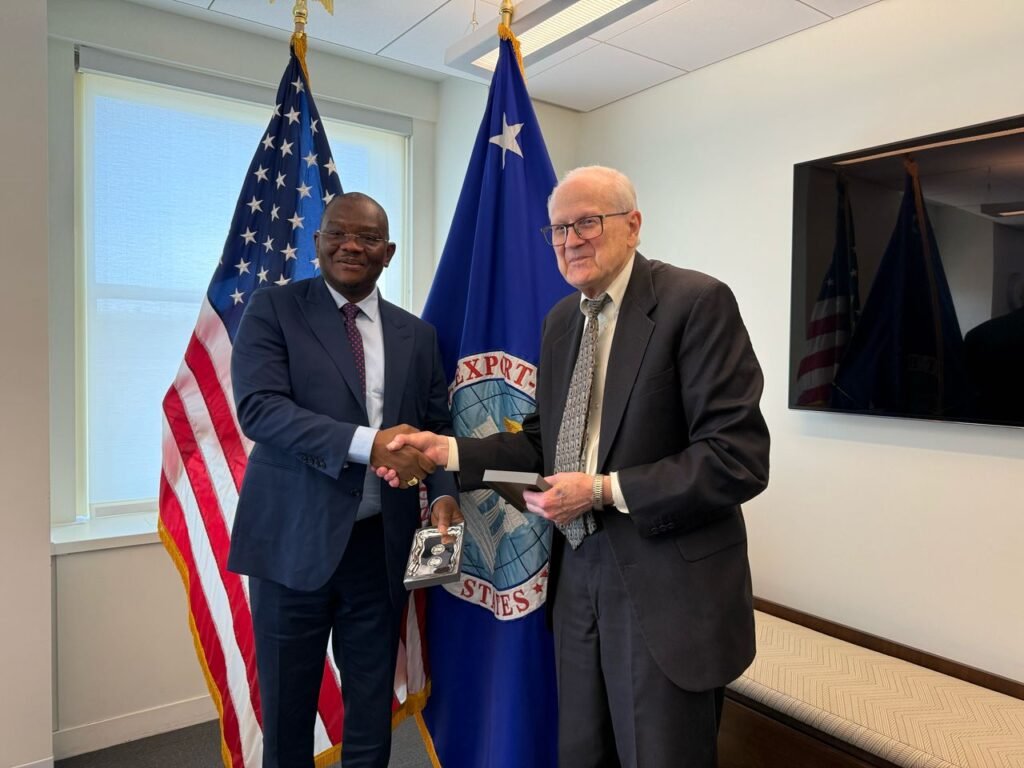Hot!
Ho is a healthy environment and the ‘Oxygen City’ of our time – MCE

Mr Divine Bosson, the Ho Municpal Chief Executive says the City of Ho had no equal in terms of a healthy environment and sanitation proactiveness.
He explained that the area is a place where natural vegetation is maintained with flora and fauna not adversely compromised.
Mr Bosson made this known at the ongoing fifth Volta Trade and Investment Fair at the Ho Sports Stadium in Ho where business owners and other organisations have converged to do business as well as to market their products to the entire business community.
He said the Municipality and for that matter, the Volta regional capital is known as the ‘Oxygen City’ because of its greenery, unpolluted air, and generally espoused healthy and clean sanitary conditions.
“The Oxygen City is among others, the best place to be in terms of unmatched hospitality, cuisine, and tourist attractions,” he said.
Mr Bosson noted that it was their vision as Municipal Assembly to achieve development within the framework of political, economic, socio-cultural, and educational objectives and within the confines of public-private partnership in keeping with the best local government practice.
Among many sectors of economic potential in the Municipality, he said there are several soil groups in the area which could be placed into two major groups namely, forest soil and savannah soils.
On vegetation, Mr Bosson said the area has two main types of vegetation zones with the moist semi-deciduous forest covering mostly the hills and savannah woodland covering the rest.
On climate conditions, he stated temperatures were generally high throughout the year which is good for crop farming.
The Municipality has a total projected population of 177,281 comprising 83, 819 males and 93,462 females with Agriculture being the mainstay of the Municipality’s economy.
“The Municipality’s irrigation potential also remains untouched,” he added.
The economy is characterised by a large number of small-scale commercial and industrial activities such as fitting shops, carpentry, welding, and others.
There were other highlights of essential activities in the area during the Municipal and District Assembly’s profile reading session of the Fair.
The Asogli ‘Unity and Love Borborbor Group’ led by Israel Nanevi Maweta, took observers through some traditional music. -GNA
Hot!
GEXIM deepens relations with US EXIM Bank

A management team of the Ghana Export – Import Bank (GEXIM) led by the Acting Chief Executive, Sylvester Mensah met with the leadership of the Export–Import Bank of the United States (US EXIM) on Wednesday April 23, 2025 in Washington DC, United States of America.
The Acting President and Chairman of US EXIM, Mr. James C. Cruse and Vice President, International Relations, Ms. Isabel Galdiz received the GEXIM delegation, which included Deputy CEO for Banking, Mr. Moses Klu Mensah and Head of International Cooperation, Mr. Jonathan Christopher Koney at the headquarters of US EXIM.

The meeting offered the GEXIM team the opportunity to share the strategic direction of the Bank in line with the resetting agenda of the President of the Republic, His Excellency John Dramani Mahama for the repositioning of the Ghanaian economy into an export-led one by providing the requisite investment to Ghanaian businesses.
Mr. James C. Cruse expressed US EXIM’s eagerness to deepen its existing relations with GEXIM and proposed the signing of a new Cooperative Framework Agreement following the expiration of a Memorandum of Understanding signed in 2019 to utilize US EXIM’s medium term loan guarantees to procure machinery by GEXIM for qualified Ghanaian Small and Medium-sized Enterprises (SMEs).
Mr.Sylvester Mensah thanked the Acting President and Chairman of US EXIM for hosting the GEXIM delegation and reaffirmed the Ghanaian government’s commitment to strengthening trade and investment between Ghana and its global partners for economic transformation of Ghana with GEXIM playing a pivotal role.
The two teams will be meeting on the sidelines of the 2025 US EXIM Annual Conference on 29th and April 30, 2025 to explore possible areas of collaboration and matching Ghanaian businesses to American companies. The meeting ended with an exchange of gifts.
Hot!
Many SOEs have been used as mere instruments for personal wealth accumulation –Pres.Mahama

President John Dramani Mahama has expressed concern over the misuse of State-Owned Enterprises (SOEs) for personal financial gain by individuals in leadership positions.
Speaking during a meeting with Chief Executives of specified entities under the State Interest and Governance Authority (SIGA) on Thursday, March 13, the President directly attributed the dire state of SOEs to their leadership, accusing chief executives, management teams, and governing boards of prioritising personal enrichment over organisational efficiency.
He pointed to bloated budgets, unjustified allowances, and unnecessary expenditures as factors draining public funds while SOEs continue to rely on government bailouts.
“Many SOEs have been used as mere instruments for personal wealth accumulation by appointees. The chief executives, management, and boards of these enterprises are responsible for this situation. Some SOEs have become perennial loss-makers, draining public funds with bloated budgets, unjustified allowances, and unnecessary expenditures while relying on government bailouts as if entitled to them. Many of these entities are at their lowest point in the entire history of the Fourth Republic,” he said.
President Mahama further noted that many SOEs have been plagued by inefficiencies, corruption, and mismanagement, leading to consistent financial losses. He cited the 2023 State Ownership Report by the State Interests and Governance Authority (SIGA), which highlighted systemic inefficiencies and wasteful expenditures within these entities.
He therefore reaffirmed his commitment to reforming under-performing SOEs and ensuring they serve national interests.
He warned that loss-making SOEs will no longer be tolerated and will either be merged, privatised, or closed.
“I will assess you based on your performance. If you do not align with the pace of the reset agenda, you may be asked to step aside. If that adds to the horror movie, so be it,” he added.
Source: Myjoyonline.com







